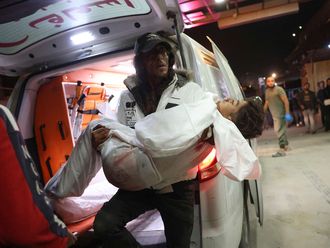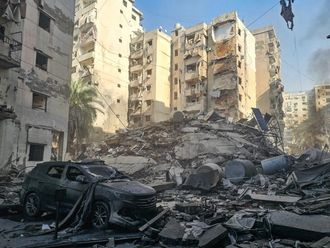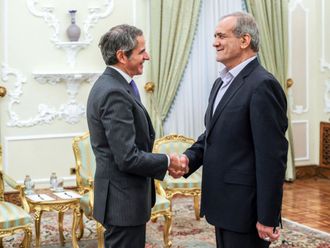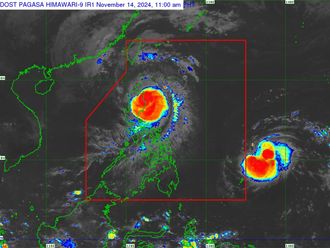
Gaza: Israeli forces shelled the outskirts of the last refuge on the southern edge of the Gaza Strip on Friday, where the displaced, penned against the border fence in their hundreds of thousands, said they feared a new assault with nowhere left to flee.
More than half of Gaza’s 2.3 million residents are now homeless and crammed into Rafah. Tens of thousands more have arrived in recent days, carrying belongings in their arms and pulling children on carts, since Israeli forces launched one of the biggest assaults of the war last week to capture adjacent Khan Younis, the main southern city.
If the Israeli tanks keep coming, “we will be left with two choices: stay and die or climb the walls into Egypt”, said Emad, 55, a businessman and father of six, reached on a mobile phone chat app.
“Most of Gaza’s population are in Rafah. If the tanks storm in, it will be a massacre like never before during this war.” Israeli Defence Minister Yoav Gallant said late on Thursday that troops would now turn to Rafah, which along with Deir al-Balah just north of Khan Younis is among the last remaining areas they have yet to storm in an almost four-month assault.
“We are achieving our missions in Khan Younis, and we will also reach Rafah and eliminate terror elements that threaten us,” Gallant said in a statement.
As the only part of Gaza with access to the limited food and medical aid trickling across the border, Rafah and nearby parts of Khan Younis have become a warren of makeshift tents clinging to the winter mud. Wind and cold weather added to the misery, blowing tents down, flooding them and the ground between them.

“What should we do? We live in multiple miseries, a war, starvation, and now the rain,” said Um Badri, a mother of five displaced from Gaza City, now living in a tent in Khan Younis.
“We used to wait for winter, to enjoy watching the rain from the balcony of our house. Now, our house is gone, and the rainwater has flooded the tent we have ended up in.” With phone service mostly shut across Gaza, residents climbed a sandy berm at the border fence and crouched beside the razor wire hoping for an Egyptian mobile signal. Mariam Odeh was trying to get a message out to family still in Khan Younis, “to tell them we are still alive and not martyrs like the others”.
‘Pressure cooker of despair’
The United Nations says rescuers can no longer reach the sick and wounded on the battlefield in Khan Younis, and the prospect of combat reaching Rafah is almost unthinkable.
“Rafah is a pressure cooker of despair, and we fear for what comes next,” Jens Laerke, spokesperson for the UN Office for the Coordination of Humanitarian Affairs, told a briefing in Geneva.
The Gaza war was triggered by Hamas fighters who stormed across the border fence into Israel on Oct. 7, killing 1,200 people and capturing 253 hostages, according to Israeli tallies.
Since then, Gaza health authorities say more than 27,000 Palestinians have been confirmed killed, 112 of them in the past 24 hours, with thousands more bodies feared lost amid the ruins, in an Israeli assault that has laid much of the territory to waste.
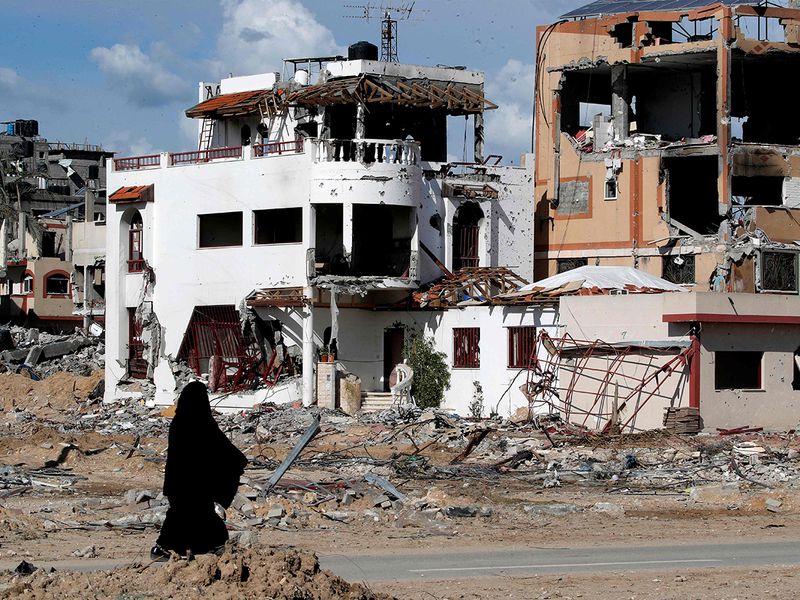
Mediators are waiting for a response from Hamas to a proposal drafted last week with Israeli and US spy chiefs and passed on by Egypt and Qatar, for the war’s first extended ceasefire.
The only truce so far lasted only a week in late November, when militants freed 110 women, children and foreign hostages.
The proposal on the table envisages a first phase lasting 40 days, during which Hamas would free remaining civilian hostages, followed by further phases to release soldiers and hand over the bodies of the dead, according to a Palestinian official.
But the sides remain far apart over what would follow.
Israel says Hamas must be eradicated before it pulls its troops out of Gaza or frees detainees. Hamas says it will not sign any truce deal unless Israel agrees to pull out and end the war.
Regional jitters
The region is also bracing for US strikes on pro-Iranian militia in Syria and Iraq, which Washington says it is preparing after three US soldiers were killed in a drone strike in Jordan, the first US fatalities in a wave of violence across the region by pro-Iranian groups accompanying the Gaza war.
US officials say the response will involve strikes over multiple days. Tehran says it will respond if its territory or interests are hit.
“We will not start any war, but if anyone wants to bully us they will receive a strong response,” President Ebrahim Raisi said in a televised speech.
Since December, several senior commanders of Iran’s elite Revolutionary Guards advising the Syrian government have been killed in presumed Israeli air strikes on Syria. Iranian semi-official media reported on Friday that a Guards adviser had been killed in yet another Israeli strike on Damascus.
Syrian state media said Syria had shot down missiles fired from Israel. Israel declined to comment, in line with its regular policy.


